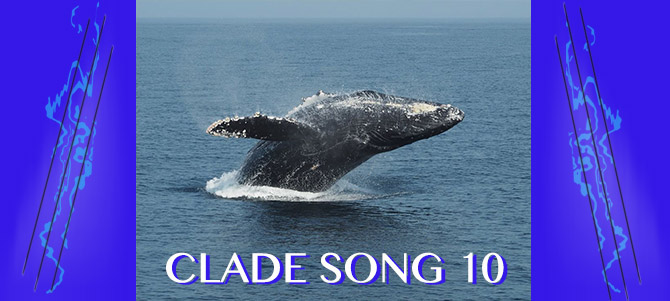|
After Xu Zheng
Thunder sang & the cosmic egg halo-glowed as wild fruit thorns-spiked from the darkness of the shell. P’an Ku was born child of Chaos. Some eggshell became her skull & this became a dome of blue sky. Other parts of the shell became the five sacred mountains of China. T’ai in the east, Hua in the west, Mt. Heng in the far north, Sung to hold the center, and in the south a mirror Mt. Heng to balance herself the creation in the void. The rest of her became all the elements of the earth: dragon-breath, cricket song, red earth & the cool flowing blood of streams & rivers. Only one infinitesimal shard was held back.
P’an Ku created innumerable beings. Then a disease, countless insatiable beings arose on her body. They began to devour all the other families, tribes, & clans of creation. They fell upon creatures who talked, upon those who crowded the skies, & others who filled the rivers as they swam home again. They fell upon ten thousand rivers which brimmed with their excrement & oceans that became spangled in plastics. Forests were razed until the blue dome sky could not be seen & mountains were hollowed for treasure. These beings even began to consume all the songs & languages of creation. Soon only lamentations & sorrows were heard, then a growing silence. So many wondrous creatures had perished for all time. P’an Ku was weak, but listening.
Finally, an ugly bat, about to be hacked into pieces, that had lived hidden in a small cave in the mountain wildernesses of Yunnan cried out to P’an Ku for help. It was then that she released the last hidden part of herself. Her mouth opened into the shape of an invisible egg & a single word made of her damp breath escaped into the sky. Her word glowed like a spark, like heads of red clover, then made a thunderhead as on the first morning of creation, which fell as a spring rain across the world of men.
Note: The first written record of the myth of P’an Ku was made during the period called the ‘The Three Kingdoms’ in China (220 to 280 AD), by Xu Zheng, a Taoist writer famous for ‘Three Five Historic Records’ and ‘Biographies of Spirits and Immortals’. Opinions differ as to whether he was writing down a Chinese myth that had its origins a thousand years before in Southern China, or whether he ‘distilled’ it from the creation stories of a number of cultures further west. There are variations of the story in different parts of China. Indeed Xu Zheng himself is attributed two versions.
|
|



